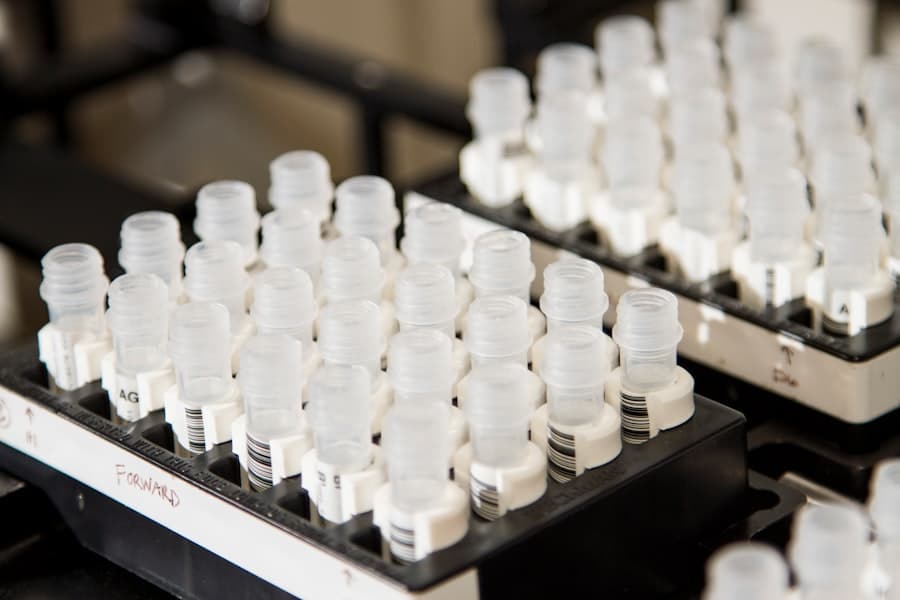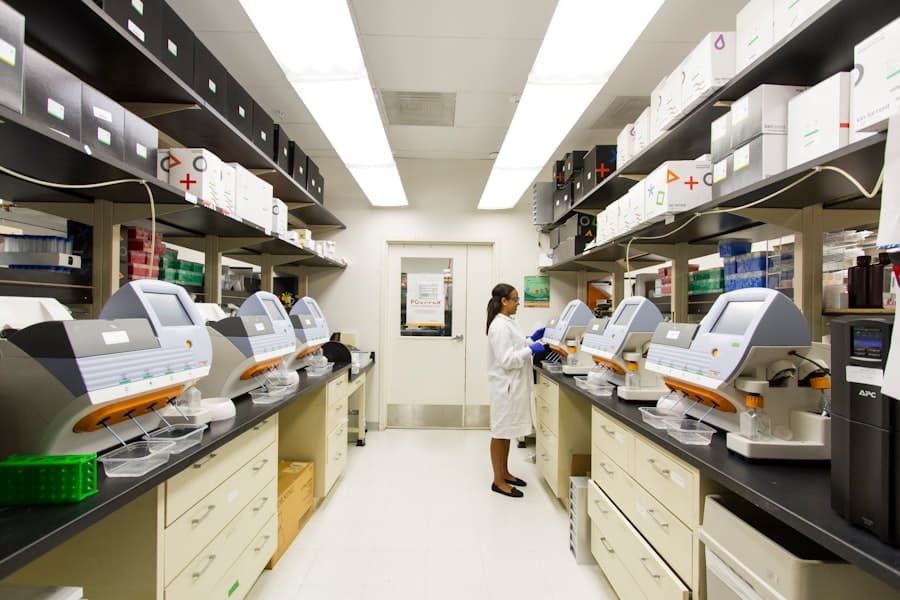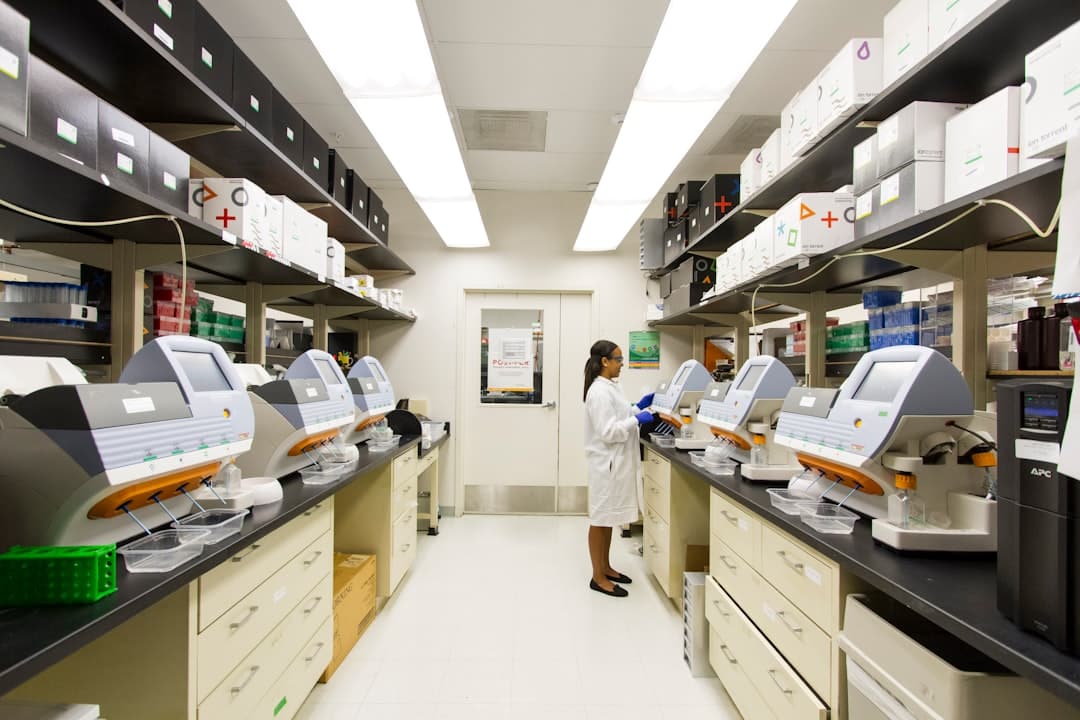The landscape of the pharmaceutical industry has undergone a significant transformation over the past few decades, with biotechnology startups emerging as pivotal players in drug discovery and development. These nimble, innovative companies often operate at the cutting edge of science, leveraging advancements in genomics, proteomics, and other fields to develop novel therapies. However, the journey from a promising idea to a marketable drug is fraught with challenges, including high research and development costs, regulatory hurdles, and the inherent risks associated with clinical trials.
To navigate these complexities, many biotech startups seek partnerships with established pharmaceutical giants, commonly referred to as Big Pharma. These collaborations can provide the necessary resources, expertise, and market access that startups often lack. Big Pharma companies, on the other hand, are increasingly recognizing the value of partnering with biotech startups.
As the pace of scientific discovery accelerates, traditional pharmaceutical companies face pressure to innovate and diversify their product pipelines. Collaborating with agile biotech firms allows them to tap into cutting-edge research and technologies while mitigating some of the risks associated with drug development. This symbiotic relationship not only enhances the potential for successful drug development but also fosters a culture of innovation within the broader pharmaceutical ecosystem.
Key Takeaways
- Partnerships between biotech startups and big pharma drive innovation and accelerate drug development.
- Successful collaborations often hinge on clear communication, aligned goals, and mutual trust.
- Challenges include navigating regulatory complexities and balancing differing organizational cultures.
- Past collaborations highlight the importance of flexibility and shared risk-taking for success.
- Future trends suggest increasing integration and strategic alliances to enhance biotech’s impact on healthcare.
Case Study: Successful Biotech Startups and Big Pharma Collaborations
One of the most illustrative examples of a successful collaboration between a biotech startup and a Big Pharma company is the partnership between Moderna Therapeutics and Merck & Co. Initially known for its pioneering work in messenger RNA (mRNA) technology, Moderna gained global recognition during the COVID-19 pandemic for its rapid development of an effective vaccine. However, prior to this success, Moderna had entered into a collaboration with Merck in 2016 to develop personalized cancer vaccines using its mRNA platform.
This partnership allowed Merck to leverage Moderna’s innovative technology while providing the startup with access to Merck’s extensive resources and expertise in oncology. Another notable case is the collaboration between Gilead Sciences and Kite Pharma. Kite, a biotech company specializing in cell therapy for cancer treatment, developed a groundbreaking CAR T-cell therapy known as Yescarta.
9 billion, recognizing the potential of Kite’s technology to enhance its oncology portfolio. This acquisition not only provided Gilead with a cutting-edge therapy but also positioned it as a leader in the rapidly evolving field of cell therapy. The partnership exemplifies how Big Pharma can benefit from the innovative capabilities of biotech startups while providing them with the financial backing and infrastructure necessary for large-scale clinical trials and commercialization.
Challenges and Opportunities in Partnering with Big Pharma

While partnerships between biotech startups and Big Pharma can yield significant benefits, they are not without challenges. One of the primary obstacles is the cultural difference between the two entities. Biotech startups often operate with a sense of urgency and flexibility that can clash with the more bureaucratic processes typical of larger pharmaceutical companies.
This disparity can lead to misunderstandings and misalignments in goals and expectations. For instance, a startup may prioritize rapid experimentation and iteration, while its Big Pharma partner may be more focused on risk management and regulatory compliance. Moreover, intellectual property (IP) concerns can complicate collaborations.
Startups are often protective of their innovations and may be hesitant to share proprietary information with larger partners. Conversely, Big Pharma companies may seek extensive rights to any discoveries made during the partnership, leading to potential conflicts over ownership and commercialization rights. Establishing clear agreements regarding IP ownership and revenue sharing is crucial to mitigating these issues and fostering a productive working relationship.
Despite these challenges, there are numerous opportunities for biotech startups when partnering with Big Pharma. Access to funding is perhaps the most significant advantage; many startups struggle to secure sufficient capital for extensive clinical trials or large-scale manufacturing. Collaborating with a well-established pharmaceutical company can provide the financial resources necessary to advance promising therapies through the development pipeline.
Additionally, Big Pharma’s established distribution networks can facilitate faster market entry for new drugs, allowing startups to capitalize on their innovations more quickly.
Key Factors for Successful Collaboration between Biotech Startups and Big Pharma
Successful collaborations between biotech startups and Big Pharma hinge on several key factors that can enhance synergy and drive innovation. First and foremost is effective communication. Open lines of communication foster transparency and trust between partners, enabling them to align their goals and expectations from the outset.
Regular meetings, updates on progress, and shared decision-making processes can help bridge cultural gaps and ensure that both parties remain on the same page throughout the collaboration. Another critical factor is mutual respect for each partner’s expertise. Biotech startups often possess specialized knowledge in their areas of research, while Big Pharma brings extensive experience in regulatory affairs, clinical trial design, and commercialization strategies.
Recognizing and valuing each other’s strengths can lead to more effective collaboration. For example, a startup may excel in innovative research methodologies but may lack experience in navigating complex regulatory landscapes; conversely, a pharmaceutical company may have robust regulatory expertise but may not be as agile in adopting new scientific approaches. Additionally, establishing clear objectives and milestones is essential for maintaining focus throughout the partnership.
By setting specific goals—such as timelines for clinical trials or targets for regulatory submissions—both parties can measure progress and make necessary adjustments along the way. This structured approach not only enhances accountability but also helps mitigate potential conflicts that may arise from differing priorities.
Impact of Partnerships on Drug Development and Innovation
The impact of partnerships between biotech startups and Big Pharma on drug development is profound. These collaborations have accelerated the pace at which new therapies reach patients by combining the innovative spirit of startups with the resources and infrastructure of larger companies. For instance, many recent breakthroughs in gene therapy and immunotherapy have emerged from partnerships that leverage cutting-edge research from biotech firms alongside the clinical expertise of pharmaceutical giants.
By pooling resources and sharing risks, both parties can explore novel therapeutic approaches that might not have been feasible independently. This collaborative model has been particularly evident in areas such as rare diseases and personalized medicine, where traditional funding mechanisms often fall short.
The influence of these partnerships extends beyond individual drug development projects; they also contribute to broader industry trends toward open innovation. As more biotech startups engage in collaborations with Big Pharma, there is a growing recognition that innovation thrives in an ecosystem where knowledge is shared across organizational boundaries. This shift is fostering a culture of collaboration within the pharmaceutical industry that encourages experimentation and exploration of new scientific frontiers.
Lessons Learned from Previous Collaborations

Examining past collaborations between biotech startups and Big Pharma reveals valuable lessons that can inform future partnerships. One key takeaway is the importance of aligning strategic goals early in the collaboration process. Misalignment can lead to wasted resources and frustration on both sides; therefore, it is crucial for partners to engage in candid discussions about their respective objectives from the outset.
Another lesson is the necessity of flexibility within partnerships. The drug development landscape is inherently unpredictable; unexpected challenges can arise during clinical trials or regulatory reviews that require partners to adapt their strategies quickly. Successful collaborations often exhibit a willingness to pivot when faced with new information or changing circumstances.
Additionally, fostering a culture of innovation within partnerships can significantly enhance outcomes. Encouraging creative problem-solving and allowing team members from both organizations to collaborate freely can lead to breakthroughs that might not have been possible within more rigid structures. For example, joint brainstorming sessions or cross-functional teams can facilitate knowledge exchange and inspire novel approaches to complex challenges.
Future Trends and Potential for Biotech Startups in Partnering with Big Pharma
As we look toward the future, several trends are likely to shape the landscape of partnerships between biotech startups and Big Pharma. One prominent trend is the increasing focus on precision medicine—tailoring treatments based on individual patient characteristics such as genetics or biomarkers. Biotech startups are at the forefront of developing targeted therapies that address specific patient populations, making them attractive partners for pharmaceutical companies seeking to enhance their precision medicine portfolios.
Another trend is the rise of digital health technologies that complement traditional drug development processes. Startups specializing in digital therapeutics or health data analytics are becoming valuable collaborators for Big Pharma as they seek to integrate technology into their therapeutic offerings. These partnerships can enhance patient engagement, improve treatment adherence, and generate real-world evidence that supports regulatory submissions.
Furthermore, as global health challenges continue to evolve—exemplified by the COVID-19 pandemic—there will be an increasing emphasis on collaborative approaches to address public health crises. Biotech startups that focus on infectious diseases or vaccine development will likely find fertile ground for partnerships with larger pharmaceutical companies looking to expand their capabilities in these critical areas.
The Role of Collaborations in Advancing Biotech and Pharmaceutical Industry
In summary, collaborations between biotech startups and Big Pharma play a crucial role in advancing drug development and fostering innovation within the pharmaceutical industry. By leveraging each other’s strengths—startups’ agility and innovative spirit alongside Big Pharma’s resources and expertise—these partnerships create a powerful synergy that accelerates the translation of scientific discoveries into life-saving therapies. As both sectors continue to evolve, embracing collaboration will be essential for addressing emerging health challenges and meeting the needs of patients worldwide.
The future holds immense potential for these partnerships to drive breakthroughs that will shape the next generation of healthcare solutions.
In exploring the dynamics of biotech startups partnering with big pharmaceutical companies, it’s interesting to consider how technology influences various sectors, including education and consumer electronics. For instance, the article on the best laptops for kids in 2023 highlights the importance of technology in fostering innovation and learning, which parallels the innovative spirit found in biotech startups. Both sectors rely on cutting-edge advancements to drive growth and improve outcomes, whether in healthcare or education.
FAQs
What is a biotech startup?
A biotech startup is a newly established company focused on developing products and technologies based on biological and medical research. These startups often work on innovative therapies, diagnostics, or medical devices.
Why do biotech startups partner with big pharmaceutical companies?
Biotech startups partner with big pharma to access resources such as funding, expertise, manufacturing capabilities, and global distribution networks. These partnerships help accelerate the development and commercialization of new therapies.
What are the common types of partnerships between biotech startups and big pharma?
Common partnership types include licensing agreements, co-development deals, joint ventures, research collaborations, and acquisition agreements. Each type varies in terms of control, financial arrangements, and risk-sharing.
How do partnerships benefit big pharmaceutical companies?
Big pharma benefits by gaining access to innovative technologies and novel drug candidates developed by biotech startups. This helps them diversify their pipelines and stay competitive in the market.
What challenges can arise in partnerships between biotech startups and big pharma?
Challenges may include differences in company culture, conflicting priorities, intellectual property disputes, and complexities in managing joint projects. Clear communication and well-defined agreements are essential to address these issues.
How do these partnerships impact drug development timelines?
Partnerships can shorten drug development timelines by combining the agility and innovation of startups with the resources and experience of big pharma, enabling faster clinical trials and regulatory approvals.
Are there financial risks involved in these partnerships?
Yes, both parties face financial risks such as investment losses if a drug candidate fails in development. However, partnerships often include milestone payments and risk-sharing mechanisms to mitigate these risks.
What role does intellectual property play in these collaborations?
Intellectual property rights are critical in defining ownership, usage, and commercialization of innovations. Clear agreements on IP help protect the interests of both biotech startups and big pharma partners.
Can biotech startups maintain independence after partnering with big pharma?
Depending on the partnership structure, startups can retain operational independence while benefiting from the partnership. However, some agreements may involve partial or full acquisition, affecting autonomy.
What trends are currently shaping partnerships between biotech startups and big pharma?
Current trends include increased focus on personalized medicine, use of artificial intelligence in drug discovery, and strategic collaborations targeting rare diseases and unmet medical needs.

